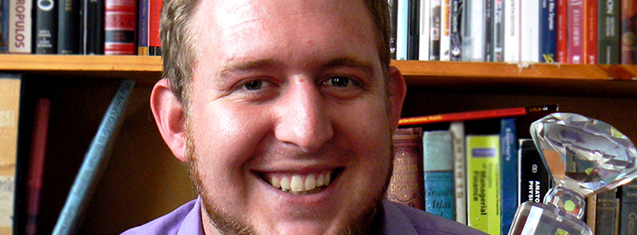Latest News Archive
Please select Category, Year, and then Month to display items
12 January 2024
|
Story Nonsindiswe Qwabe
|
Photo Sonia Small
 Since joining the UFS in 2008, Dr Grey Magaiza has worked extensively on approaches that can foster the socio-economic transformation of societies.
Since joining the UFS in 2008, Dr Grey Magaiza has worked extensively on approaches that can foster the socio-economic transformation of societies.
“The future should be one where communities can decide on their development agenda and futures. That’s the most important for me.” Dr Grey Magaiza, Deputy Director of the Centre for Gender and Africa Studies (CGAS) and Head of the Community Development programme on the Qwaqwa Campus, is passionate about capacitating communities to be agents of change and advancement. His vision for the future emphasises the empowerment of communities to take charge of their development by actively participating in decision making and the implementation of development projects that can improve their lives.
Since joining the UFS in 2008, Dr Magaiza has worked extensively on approaches that can foster the socio-economic transformation of societies. Over the years, he has crafted his research speciality into one that he is most proud of – being an interdisciplinary scientist immersed in the development of communities.
“I’m in a fortunate position of researching what I like. I say ‘fortunate’, because I’ve taken the time to understand what I’m passionate about, which is the overall field of rural livelihoods and livelihood futures – in short, community development. My research starts from an engaged university, understanding the elements that a university must use to enhance transformation and relevance to its immediate community in terms of development.”
One of the ways he has done this is by looking at social entrepreneurship as a development approach for young people in a rural setting. Through workshops with non-profit and civic organisations in Qwaqwa, Dr Magaiza has been helping these organisations to map out their needs and actively meet them through the involvement and support of external role players.
“We understand that communities are part of the national development agenda, but even that national agenda respects community knowledge and intentions and allows communities to shape their identity. A critical enabler of this is community organising. You bring back the capacity in communities to have dialogues on issues affecting them as spaces for engagement, knowledge exchange, and for people to just talk about their way forward.”
By enabling communities to define their development agenda, they can address their specific needs, challenges, and aspirations, he said. “When I look at livelihood futures, it’s quite an exciting aspect of my work – it’s like looking into a fortune tellers’ globe, because you’re not deciding for communities what they should do, but the communities themselves take those decisions.”
Junior researcher makes Kovsies proud
2014-11-11

Herkulaas Combrink received the Junior Researcher Award at the 3rd Annual Health Research Day held on 30 and 31 October 2014. On this day, clinicians and scientists shared information on research that will impact health in the Free State.
Combrink is a student in the Faculty of Health Sciences’ Department of Human Genetics, as well as Medical Science intern with the Health Professions Council of South Africa (HPCSA). His research project: ‘Familial Breast Cancer in BRCA1 and BRCA2 within the Indian population of South Africa’ forms part of an umbrella study which looks at the various populations of South Africa for familial breast cancer mutations within BRCA1 and BRCA2 genes, so that diagnostic panels can be created. This is the first study of its kind to be done on this population group in South Africa.
He says: “I am passionate about my research and the impact of my work. I am hard-working and believe in the value of my contribution to science. My philosophy is that theory must always be put into practice. I apply this philosophy to everything I pursue.”
The research week was held by the School of Medicine in conjunction with the Free State Department of Health.